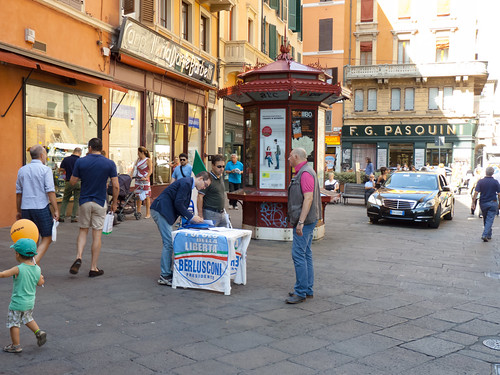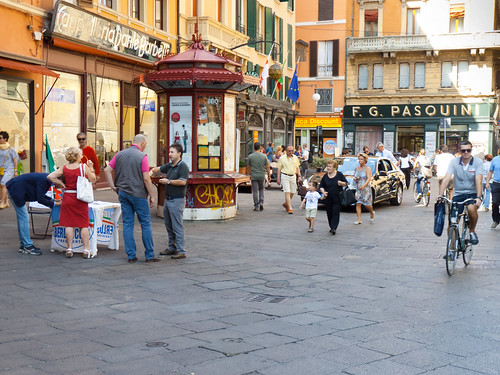While shopping centres have a car park fit to accommodate a deluge of immigrants from Romania, many hospitals don’t seem to have woken up to the idea yet that people might need to drive to their offerings. I’ve heard a number of stories of hospitals where there isn’t anywhere near enough parking. I have an image of people sitting around in committees and arguing that there’s a perfectly good bus service, we should be encouraging people to travel by public transport. Which is all very well, but in many cases there may be a good bus service to some places, but not everyone who needs to go there lives in those places.
Last week Hilary had an appointment at Lancaster Royal Infirmary – one of the two main hospitals covering north Lancashire and south Cumbria, and Lancaster hospital has a car park that is far, far too small for the number of people who need to use it – people such as us, who cannot go on the bus, for there is no bus. We were aware of this so I drove Hilary and dropped her off while I circled round and round trying to find somewhere to park, among all the other cars doing much the same thing. Eventually, after about half an hour, I found a spot in what I thought was a two-hour parking bay.
Hilary was to have an injection and then a hour-and-a-half wait followed by a scan. She was told it would be a good idea to go and get a cup of coffee in the canteen during the wait time and maybe take a bit of fresh air, but to try and stay calm. Don’t do anything that might make you hurried or stressed. We went outside to find that I had a parking ticket! I had failed to spot, in my near desperation that there would ever be anywhere at all to park, that I had parked in a disabled-only bay. I don’t get too bothered by this, I just pay the fine on the basis that the meaning and purpose of life is to play silly practical jokes upon a person, and there’s no point in trying to fight that. Hilary, by contrast, was brought up middle class. She was brought up to to believe in fairness. That life for the virtuous should be fair. So she gets peeved that the hospital is failing to provide sufficient resources for its patients to attend their appointments.
We went to the hospital canteen where there was a self-service coffee machine. Whatever button I pressed, including one marked ‘expresso’, I seemed to get a coffee with milk in. I called a member of staff over: ‘Everything I press seems to give me a coffee with milk; I want a black coffee’.
‘You have to press ‘Café Creme’, that gives you a black coffee’. And sure enough, it did! Well of course, how silly of me!
We detected five staff on in the canteen, doing what, was not entirely clear. Needs outsourcing, Hilary and I agreed. Or if not then properly managing but then why should a hospital be putting all its management effort into the canteen? But I suppose outsourcing would cause ructions and uproar; destroying a perfectly good service for the sake of faceless profit, the arguers would categorically shout. The Danish pastry I bought to go with my coffee was stale. But I decided we’d had enough aggro this morning, especially for someone who was supposed to be staying calm for health reasons, so I ate it stale.
Walking back to the ‘nuclear medicine’ unit there was a group of people partly blocking the hallway. An elderly woman had fallen and cut her head, there was blood on the floor and all over her hand where she had held it to her head after falling, and people were milling round trying to get her upright and bandaged. The place gave the distinct impression of a lunatic asylum.
Anyway, Hilary had her scan while I watched daytime telly in the reception area, and then we drove home without further incident. And I paid the parking fine, £35, online.




